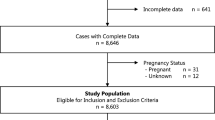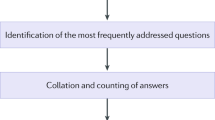Abstract
Infectious diseases of the CNS lead to overwhelming inflammatory processes within the brain and spinal cord that contribute substantially to patient morbidity and mortality. Pharmacological strategies to modulate inflammation have been investigated, although the resulting guidelines have sometimes been contradictory. Steroids have been proposed as adjunctive treatments for bacterial meningitis, tuberculous meningitis and herpes simplex virus encephalitis. Well-designed randomized controlled trials have established dexamethasone as an adjunctive therapy for adult patients receiving antibiotics for bacterial meningitis, and physicians prescribing the initial antibiotics need to be aware of current guidelines. Morbidity and mortality in patients with tuberculous meningitis exceeds 50%. Steroid treatments reduce mortality through an as yet unknown mechanism, although their effects on morbidity are less clear. Herpes simplex virus encephalitis is also associated with considerable morbidity and mortality. Despite a lack of randomized trials, there is some evidence that steroids used alongside antiviral therapy might be beneficial in this condition. As we discuss in this Review, systemic steroid treatment is an important aspect of treatment regimens for CNS infectious diseases, and the recent literature provides guidelines for the use of steroids in combination with appropriate antimicrobial therapy.
Key Points
-
Dexamethasone is recommended for the treatment of suspected bacterial meningitis both in adults, and in children living in high-income countries
-
Adjunctive steroids should be administered before or with the first dose of antibiotics in cases of suspected bacterial meningitis
-
Dexamethasone should be considered as part of the treatment protocol for tuberculous meningitis
-
Steroid treatment might be beneficial in herpes simplex virus encephalitis, but more studies are needed to clarify its role in this condition
This is a preview of subscription content, access via your institution
Access options
Subscribe to this journal
Receive 12 print issues and online access
$209.00 per year
only $17.42 per issue
Buy this article
- Purchase on Springer Link
- Instant access to full article PDF
Prices may be subject to local taxes which are calculated during checkout
Similar content being viewed by others
References
van de Beek D et al. (2004) Clinical features and prognostic factors in adults with bacterial meningitis. N Engl J Med 351: 1849–1859
Weisfelt M et al. (2006) Clinical features, complications and outcome in adults with pneumococcal meningitis: a prospective case series. Lancet Neurol 5: 123–129
Aronin SI et al. (1998) Community-acquired bacterial meningitis: risk stratification for adverse clinical outcome and effect of antibiotic timing. Ann Intern Med 129: 862–869
Kalita J et al. (2007) Predictors of long-term neurological sequelae of tuberculous meningitis: a multivariate analysis. Eur J Neurol 14: 33–37
Whitley RJ (2006) Herpes simplex encephalitis: adolescents and adults. Antiviral Res 71: 141–148
Fitch MT et al. (1999) Cellular and molecular mechanisms of glial scarring and progressive cavitation: in vivo and in vitro analysis of inflammation-induced secondary injury after CNS trauma. J Neurosci 19: 8182–8198
Fitch MT and Silver J (2007) CNS injury, glial scars, and inflammation: inhibitory extracellular matrices and regeneration failure. Exp Neurol [10.1016/j.expneurol.2007.05.014]
Koedel U et al. (2002) Pathogenesis and pathophysiology of pneumococcal meningitis. Lancet Infect Dis 2: 721–736
van de Beek D (2007) Brain teasing effect of dexamethasone. Lancet Neurol 6: 203–204
van de Beek D and de Gans J (2006) Dexamethasone in adults with community-acquired bacterial meninigitis. Drugs 66: 415–427
Meyding-Lamade UK et al. (2003) Experimental herpes simplex virus encephalitis: a combination therapy of acyclovir and glucocorticoids reduces long-term magnetic resonance imaging abnormalities. J Neurovirol 9: 118–125
Jubelt B (2006) Dexamethasone for the treatment of tuberculous meningitis in adolescents and adults. Curr Neurol Neurosci Rep 6: 451–452
Czock D et al. (2005) Pharmacokinetics and pharmacodynamics of systemically administered glucocorticoids. Clin Pharmacokinet 44: 61–98
Schuchat A et al. (1997) Bacterial meningitis in the United States in 1995. Active Surveillance Team. N Engl J Med 337: 970–976
van de Beek D et al. (2006) Community-acquired bacterial meningitis in adults. N Engl J Med 354: 44–53
Fitch MT and van de Beek D (2007) Emergency diagnosis and treatment of adult meningitis. Lancet Infect Dis 7: 191–200
Weisfelt M et al. (2006) Dexamethasone and long-term outcome in adults with bacterial meningitis. Ann Neurol 60: 456–468
van de Beek D et al. Corticosteroids in acute bacterial meningitis. Cochrane Database of Systematic Reviews 2007, Issue 1. Art. No.: CD004405. 10.1002/14651858.CD004405.pub2
Verner JV et al. (1956) Pneumococcal meningitis treated with hydrocortisone, ACTH, and antibiotics. Univ Michigan Med Bull 22: 329
Ribble JC and Braude AI (1958) ACTH and adrenal steroids in the treatment of pneumococcal meningitis in adults. Am J Med 24: 68–79
Hoh TK and Mong CT (1962) The treatment of purulent meningitis with adrenal cortico-steroids. Singapore Med J 3: 73–77
Scheld WM et al. (2002) Pathophysiology of bacterial meningitis: mechanism(s) of neuronal injury. J Infect Dis 186 (Suppl 2): S225–S233
Quagliarello VJ and Scheld WM (1997) Treatment of bacterial meningitis. N Engl J Med 336: 708–716
McIntyre PB et al. (1997) Dexamethasone as adjunctive therapy in bacterial meningitis: a meta-analysis of randomized clinical trials since 1988. JAMA 278: 925–931
de Gans J and van de Beek D (2002) Dexamethasone in adults with bacterial meningitis. N Engl J Med 347: 1549–1556
van de Beek D et al. (2004) Steroids in adults with acute bacterial meningitis: a systematic review. Lancet Infect Dis 4: 139–143
Schaad UB et al. (1993) Dexamethasone therapy for bacterial meningitis in children. Swiss Meningitis Study Group. Lancet 342: 457–461
Molyneux EM et al. (2002) Dexamethasone treatment in childhood bacterial meningitis in Malawi: a randomised controlled trial. Lancet 360: 211–218
Molyneux E et al. (2006) Acute bacterial meningitis in children presenting to the Royal Liverpool Children's Hospital, Liverpool, UK and the Queen Elizabeth Central Hospital in Blantyre, Malawi: a world of difference. Ann Trop Paediatr 26: 29–37
Kalil AC (2005) The use of dexamethasone in bacterial meningitis. Clin Infect Dis 40: 1061–1062
Lefering R and Neugebauer EA (1995) Steroid controversy in sepsis and septic shock: a meta-analysis. Crit Care Med 23: 1294–1303
Cronin L et al. (1995) Corticosteroid treatment for sepsis: a critical appraisal and meta-analysis of the literature. Crit Care Med 23: 1430–1439
Annane D et al. (2004) Corticosteroids for severe sepsis and septic shock: a systematic review and meta-analysis. BMJ 329: 480
Annane D et al. (2002) Effect of treatment with low doses of hydrocortisone and fludrocortisone on mortality in patients with septic shock. JAMA 288: 862–871
Thomas Z and Fraser GL (2007) An update on the diagnosis of adrenal insufficiency and the use of corticotherapy in critical illness. Ann Pharmacother 41: 1456–1465
Cinel I and Dellinger RP (2007) Advances in pathogenesis and management of sepsis. Curr Opin Infect Dis 20: 345–352
Tunkel AR et al. (2004) Practice guidelines for the management of bacterial meningitis. Clin Infect Dis 39: 1267–1284
Thwaites GE and Tran TH (2005) Tuberculous meningitis: many questions, too few answers. Lancet Neurol 4: 160–170
Shane SJ and Riley C (1953) Tuberculous meningitis: combined therapy with cortisone and antimicrobial agents. N Engl J Med 249: 829–834
Ashby M and Grant H (1955) Tuberculous meningitis treated with cortisone. Lancet 268: 65–66
Hockaday JM and Smith HM (1966) Corticosteroids as an adjuvant to the chemotherapy of tuberculous meningitis. Tubercle 47: 75–91
O'Toole RD et al. (1969) Dexamethasone in tuberculous meningitis: relationship of cerebrospinal fluid effects to therapeutic efficacy. Ann Intern Med 70: 39–48
Escobar JA et al. (1975) Mortality from tuberculous meningitis reduced by steroid therapy. Pediatrics 56: 1050–1055
Girgis NI et al. (1991) Dexamethasone adjunctive treatment for tuberculous meningitis. Pediatr Infect Dis J 10: 179–183
Kumarvelu S et al. (1994) Randomized controlled trial of dexamethasone in tuberculous meningitis. Tuber Lung Dis 75: 203–207
Schoeman JF et al. (1997) Effect of corticosteroids on intracranial pressure, computed tomographic findings, and clinical outcome in young children with tuberculous meningitis. Pediatrics 99: 226–231
Prasad K et al. Steroids for treating tuberculous meningitis. Cochrane Database of Systematic Reviews 2006, Issue 1. Art. No.: CD002244. 10.1002/14651858.CD002244.pub2
Thwaites GE et al. (2004) Dexamethasone for the treatment of tuberculous meningitis in adolescents and adults. N Engl J Med 351: 1741–1751
Thwaites GE et al. (2007) Serial MRI to determine the effect of dexamethasone on the cerebral pathology of tuberculous meningitis: an observational study. Lancet Neurol 6: 230–236
Simmons CP et al. (2005) The clinical benefit of adjunctive dexamethasone in tuberculous meningitis is not associated with measurable attenuation of peripheral or local immune responses. J Immunol 175: 579–590
Rock RB et al. (2005) Mycobacterium tuberculosis-induced cytokine and chemokine expression by human microglia and astrocytes: effects of dexamethasone. J Infect Dis 192: 2054–2058
Schmutzhard E (2001) Viral infections of the CNS with special emphasis on herpes simplex infections. J Neurol 248: 469–477
Tyler KL (2004) Herpes simplex virus infections of the central nervous system: encephalitis and meningitis, including Mollaret's. Herpes 11 (Suppl 2): S57A–S64A
Baringer JR et al. (1976) Experimental herpes simplex virus encephalitis: effect of corticosteroids and pyrimidine nucleoside. Arch Neurol 33: 442–446
Eisenstein LE et al. (2004) Herpes simplex (HSV-1) aseptic meningitis. Heart Lung 33: 196–197
Cinque P et al. (1996) The role of laboratory investigation in the diagnosis and management of patients with suspected herpes simplex encephalitis: a consensus report. The EU Concerted Action on Virus Meningitis and Encephalitis. J Neurol Neurosurg Psychiatry 61: 339–345
Aurelius E et al. (1993) Encephalitis in immunocompetent patients due to herpes simplex virus type 1 or 2 as determined by type-specific polymerase chain reaction and antibody assays of cerebrospinal fluid. J Med Virol 39: 179–186
Thompson KA et al. (2000) Herpes simplex replication and dissemination is not increased by corticosteroid treatment in a rat model of focal Herpes encephalitis. J Neurovirol 6: 25–32
Sergerie Y et al. (2007) Delayed but not early glucocorticoid treatment protects the host during experimental herpes simplex virus encephalitis in mice. J Infect Dis 195: 817–825
Kamei S et al. (2005) Evaluation of combination therapy using aciclovir and corticosteroid in adult patients with herpes simplex virus encephalitis. J Neurol Neurosurg Psychiatry 76: 1544–1549
Hacke W (2006) German trial of Acyclovir and Corticosteroids in Herpes-simplex-virus-Encephalitis (GACHE). ISRCTN Register [http://www.controlled-trials.com/ISRCTN45122933]
Acknowledgements
MT Fitch received faculty funding support from the Brooks Scholars in Academic Medicine award at the Wake Forest University School of Medicine, Winston-Salem, NC, USA. D van de Beek is supported by a personal grant from the Netherlands Organization for Health Research and Development (NWO-Veni grant 2006; no. 916.76.023). Charles P Vega, University of California, Irvine, CA, is the author of and is solely responsible for the content of the learning objectives, questions and answers of the Medscape-accredited continuing medical education activity associated with this article.
Author information
Authors and Affiliations
Corresponding author
Ethics declarations
Competing interests
The authors declare no competing financial interests.
Rights and permissions
About this article
Cite this article
Fitch, M., van de Beek, D. Drug Insight: steroids in CNS infectious diseases—new indications for an old therapy. Nat Rev Neurol 4, 97–104 (2008). https://doi.org/10.1038/ncpneuro0713
Received:
Accepted:
Issue Date:
DOI: https://doi.org/10.1038/ncpneuro0713
This article is cited by
-
Steroids for the treatment of viral encephalitis: a systematic literature review and meta-analysis
Journal of Neurology (2023)
-
Non-traumatic pediatric intracranial hypertension: key points for different etiologies, diagnosis, and treatment
Acta Neurologica Belgica (2021)
-
Clinical use of steroids in viral central nervous system (CNS) infections: three challenging cases
Journal of NeuroVirology (2021)
-
Infectious Encephalitis in the Neurocritical Care Unit
Current Treatment Options in Neurology (2020)
-
The German trial on Aciclovir and Corticosteroids in Herpes-simplex-virus-Encephalitis (GACHE): a multicenter, randomized, double-blind, placebo-controlled trial
Neurological Research and Practice (2019)



